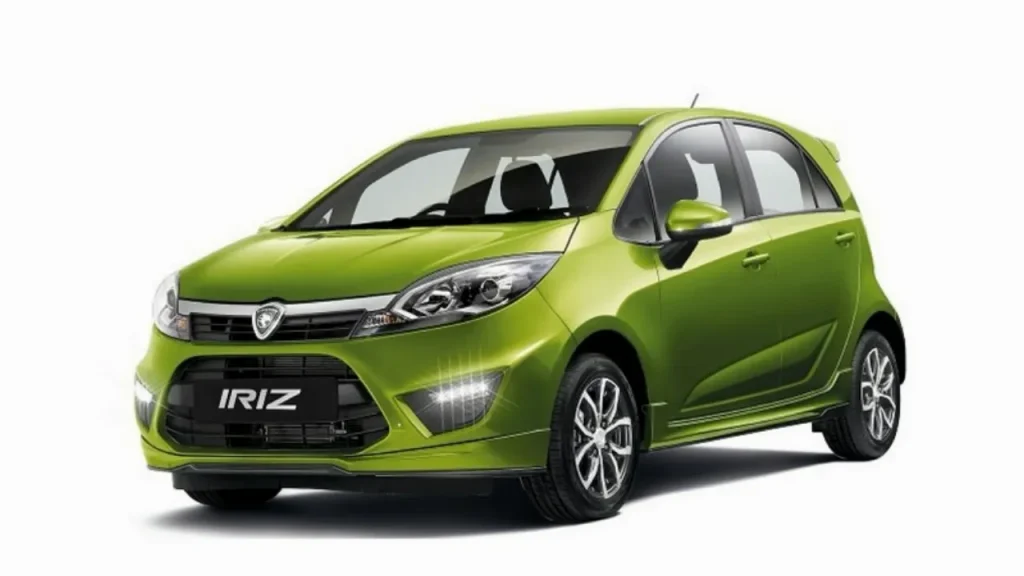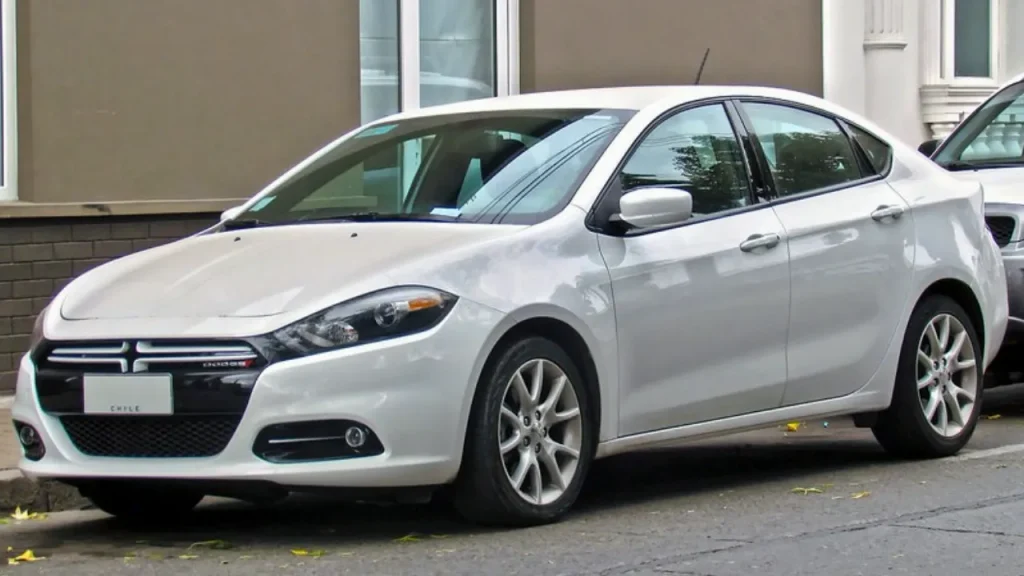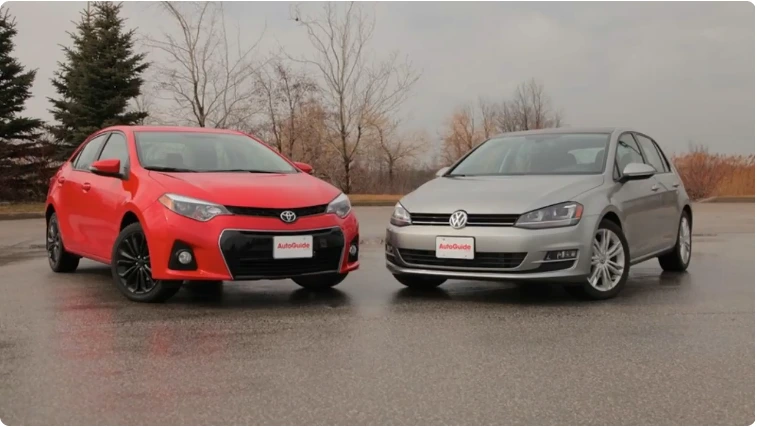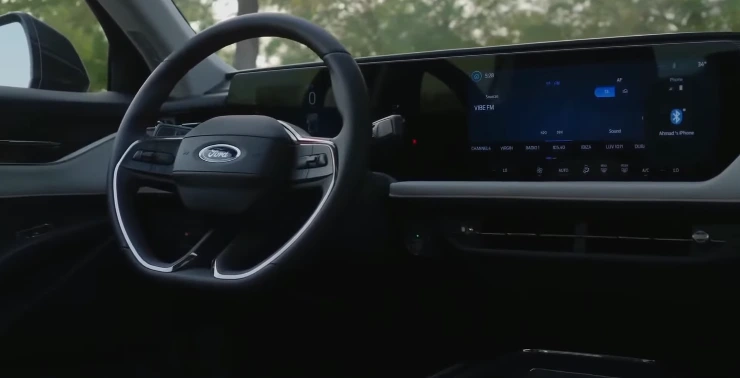Economy vs Compact Car: What Are The Differences?
The primary distinction between an economy car and a compact car lies in their size, with compact cars being slightly smaller than economy cars. Despite the size difference, both vehicle classes are known for their high fuel efficiency.
Choosing the right type of car can be a pivotal decision for many drivers, and understanding the nuances between various classes is crucial. One common point of confusion is distinguishing between economy cars and compact cars.
While both categories share a reputation for fuel efficiency, there are key distinctions that go beyond mere gas mileage. In this exploration of Economy vs. Compact Cars, we’ll delve into the defining features, sizes, and other factors that set these two car classes apart.
Whether you’re a first-time car buyer or contemplating an upgrade, gaining clarity on these differences will help you make a more informed decision tailored to your driving needs and preferences.
Economy Cars – 2 to 4 doors
Economy cars, characterized by their efficiency and affordability, are a popular choice for drivers prioritizing practicality and fuel economy. These vehicles typically fall into the compact or subcompact category and are designed with a focus on providing reliable transportation at an accessible price point.
One common feature of economy cars is their versatility in terms of the number of doors, with options available in both two-door and four-door configurations. This flexibility caters to a diverse range of consumer preferences, offering compactness and maneuverability for city driving, coupled with the convenience of additional doors for passengers and cargo access.
Economy cars are often equipped with fuel-efficient engines, making them ideal for daily commuting and cost-effective ownership. Their compact size, coupled with the option for multiple doors, underscores the practicality and adaptability that defines this popular segment in the automotive market.
Standard economy car for 2023 – Chevrolet Spark
There isn’t a model known as the “Chevrolet Spar” from Chevrolet’s lineup. However, if you are referring to the Chevrolet Spark, a subcompact car, I can provide some information.
The Chevrolet Spark is known for its compact size, making it well-suited for urban driving. It typically features a four-cylinder engine for efficiency and maneuverability. As a standard economy car, the Spark often emphasizes fuel efficiency and affordability. It’s designed to be a practical choice for drivers who prioritize easy parking, economical commuting, and a budget-friendly overall ownership experience.
Compact cars – more than 4 doors
Compact cars are typically defined by their size and efficiency, making them a popular choice for urban commuting and everyday use. While most compact cars are commonly available in a four-door configuration, it’s not uncommon to find some models offering more than four doors. The additional doors, often referred to as five-door configurations, include a rear hatch or tailgate, providing access to a more versatile cargo space.
These compact five-door cars, commonly known as hatchbacks, blend the efficiency of a compact car with the added practicality of a rear cargo area that can be easily accessed. The extra doors enhance the convenience for passengers entering and exiting the rear seats, and the hatchback design contributes to increased cargo capacity, making them suitable for those who need a bit more versatility without sacrificing the compact footprint.
Popular examples of compact cars with more than four doors include models like the Volkswagen Golf, Ford Focus Hatchback, and Subaru Impreza Hatchback. This configuration provides drivers with a well-rounded solution that balances efficient city driving with enhanced cargo space and accessibility.

Standard Compact Car in 2023 – Nissan Versa
The Nissan Versa is indeed considered a standard compact car. The Nissan Versa has been known for its affordability, practicality, and fuel efficiency. It is available in both sedan and hatchback versions, providing flexibility for different consumer preferences.
The Nissan Versa typically offers a comfortable interior, user-friendly technology features, and good fuel economy, making it a suitable choice for drivers seeking an economical and reliable compact car. It is often appreciated for its spacious cabin relative to its size, making it an appealing option for those who prioritize interior space within a compact form factor.
For the most accurate and up-to-date information regarding the 2022 Nissan Versa, including any potential updates or changes, it is recommended to check with the official Nissan website or consult with a Nissan dealership. Car models and features can evolve, and the latest information will provide the most accurate representation of the vehicle.
Economy vs Compact Car
Economy and compact cars are two distinct classifications in the automotive industry, each catering to specific preferences and needs.
Economy Cars
Economy cars are designed with a primary focus on affordability and fuel efficiency. These vehicles are typically smaller in size, making them ideal for urban commuting and short trips. Economy cars are often characterized by their lightweight construction, which contributes to their excellent fuel economy.
While they may have more modest features and a simpler design compared to larger models, economy cars appeal to cost-conscious consumers who prioritize budget-friendly ownership and minimal environmental impact.
Compact Cars
Compact cars, on the other hand, represent a slightly larger category that strikes a balance between size and versatility. While still smaller than midsize or full-size sedans, compact cars offer more space and comfort compared to economy cars. They often feature four doors, ample cargo space, and enhanced driving capabilities.
Compact cars are popular among drivers who seek a well-rounded vehicle suitable for both city commuting and longer journeys. Models like the Honda Civic, Toyota Corolla, and Ford Focus are examples of well-known compact cars.

What is better compact or economy car?
The choice between a compact and an economy car depends on individual preferences, driving needs, and lifestyle. Compact cars generally offer a bit more space than economy cars, providing a balance between maneuverability and comfort.
They often feature a more substantial interior, making them suitable for small families or those who desire additional room without sacrificing fuel efficiency. On the other hand, economy cars, known for their smaller size and lighter weight, excel in fuel efficiency and ease of parking, making them ideal for urban commuting.
The decision ultimately comes down to personal priorities. If maximizing fuel economy and easy maneuverability in city settings are top concerns, an economy car might be preferable. However, if a bit more space and versatility are desired without moving into a larger vehicle category, a compact car could be the better choice.
It’s recommended to consider factors such as daily usage, parking conditions, and passenger needs to determine which type aligns best with individual preferences.
What is the difference between economy and compact Avis?
Avis, like many car rental companies, typically categorizes their vehicles into different classes, and “economy” and “compact” are two such classifications. While the specific models within these classes can vary, there are general distinctions.
Economy cars are often the smaller and more fuel-efficient option, ideal for city driving and cost-effective travel. They usually have basic features and are known for their affordability. On the other hand, compact cars are slightly larger than economy cars, providing a bit more space and comfort.
They may have additional features and a more solid build, making them suitable for longer journeys or trips with more passengers. It’s advisable to check Avis’s specific vehicle offerings within these classes, as the available models can vary by location and availability. This way, renters can choose the size and features that best match their preferences and needs during their rental period.
What does economy mean for a car?
In the context of cars, the term “economy” typically refers to a class or category of vehicles known for their fuel efficiency, affordability, and practicality. Economy cars are designed with a focus on providing cost-effective transportation solutions for daily commuting and general use.
These vehicles are often smaller in size, making them maneuverable in urban environments and easy to park. While economy cars may have more modest features compared to larger and more luxurious models, their appeal lies in their efficiency, lower purchase price, and reduced fuel consumption.
Drivers opting for economy cars prioritize budget-friendly ownership costs and minimal environmental impact, making these vehicles a popular choice for those seeking reliable and economical transportation.
What are considered compact cars?
Compact cars are a category of automobiles known for their relatively smaller size and efficient use of space. Typically falling between subcompact cars and midsize sedans in terms of size, compact cars strike a balance between maneuverability and interior comfort.
These vehicles are well-suited for urban driving, offering easy parking and fuel efficiency. Common features of compact cars include a four-door sedan or hatchback design, seating for four to five passengers, and efficient yet capable engines. Popular models in the compact car segment include the Honda Civic, Toyota Corolla, Volkswagen Golf, and Ford Focus.
Compact cars often appeal to a wide range of consumers, from individuals seeking an economical daily driver to small families requiring a practical yet nimble vehicle for various needs.
FAQ:
Q: What distinguishes an economy car from a compact car?
A: Economy cars prioritize affordability and fuel efficiency, often with a smaller size. Compact cars are slightly larger, offering a balance between size and versatility.
Q: Are economy cars and compact cars the same in terms of fuel efficiency?
A: Generally, both classes are known for fuel efficiency, but economy cars may excel in this aspect due to their smaller size and lighter weight.
Q: What types of features can be expected in an economy car?
A: Economy cars often have basic features, focusing on essential functions to keep costs low, making them suitable for practical commuting.
Q: Do compact cars cost more than economy cars?
A: Compact cars may have a slightly higher price due to additional features and a bit more space, but both classes are generally affordable compared to larger vehicle types.
Q: Which class is more suitable for city driving and parking?
A: Both economy and compact cars are well-suited for city driving, but economy cars may have a slight edge in terms of parking ease due to their smaller size.
Q: Can compact cars accommodate more passengers than economy cars?
A: Generally, compact cars offer a bit more interior space, allowing for additional passengers compared to most economy cars.
Q: Are there specific brands known for producing reliable economy or compact cars?
A: Various brands offer reliable options in both classes. Toyota, Honda, Ford, and Volkswagen are known for producing popular models in both categories.
Q: Do economy and compact cars have different cargo capacities?
A: Compact cars typically have a larger cargo capacity than economy cars, offering more flexibility for transporting belongings.
Q: Are there notable differences in driving performance between the two classes?
A: While both are designed for efficient driving, compact cars may offer a slightly more comfortable and stable driving experience due to their larger size.
Q: Which class is more suitable for long-distance travel?
A: Compact cars are often preferred for long-distance travel, providing a good balance of fuel efficiency, comfort, and additional space compared to economy cars.



![Sealing Motor Oil Leaks From the Outside [A Practical Guide]](https://automhelp.com/wp-content/uploads/2024/02/Sealing-Motor-Oil-Leaks-From-the-Outside.webp)


![Volvo vs Mercedes Reliability[A Detailed Comparison]](https://automhelp.com/wp-content/uploads/2024/02/Screenshot-2024-09-29-104041.webp)
